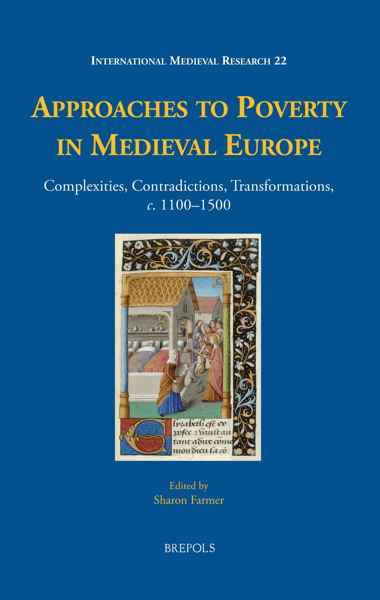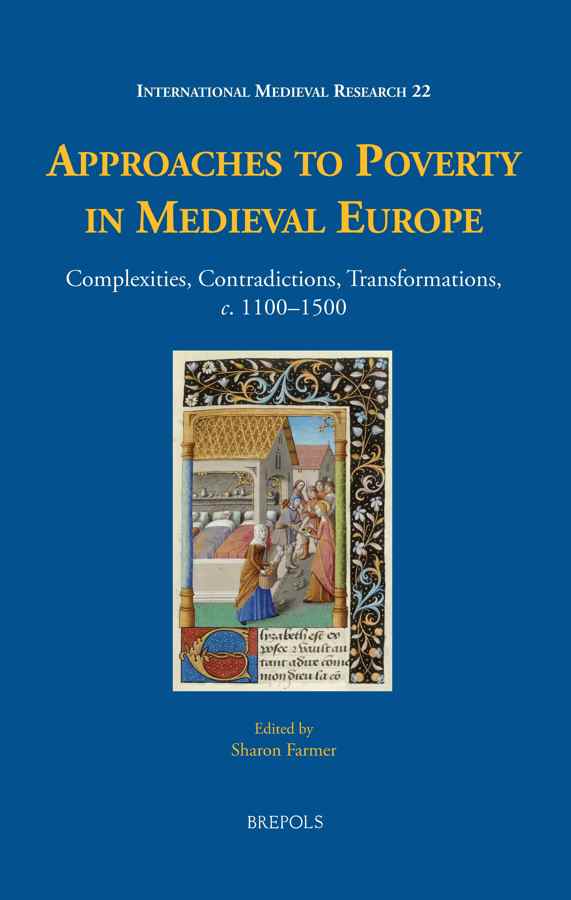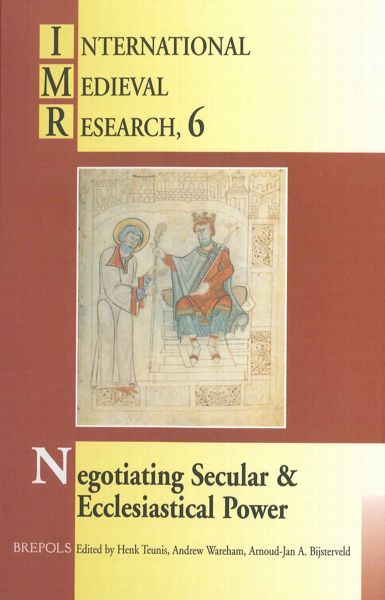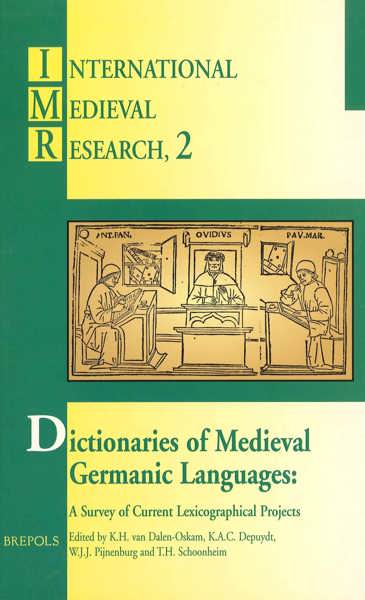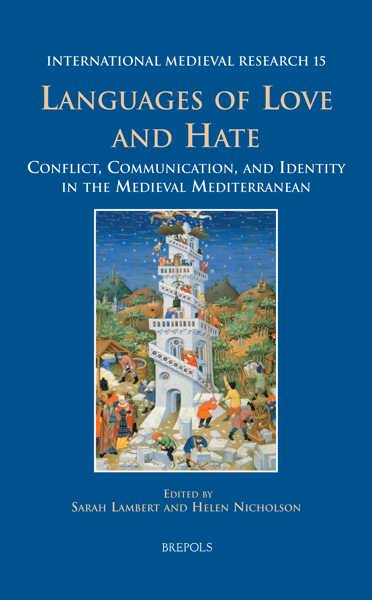
Approaches to Poverty in Medieval Europe
Complexities, Contradictions, Transformations, c. 1100–1500
Sharon Ann Farmer (ed)
- Pages: 252 p.
- Size:156 x 234 mm
- Illustrations:4 b/w
- Language(s):English
- Publication Year:2016
- € 95,00 EXCL. VAT RETAIL PRICE
- ISBN: 978-2-503-55547-8
- Hardback
- Available
- € 95,00 EXCL. VAT RETAIL PRICE
- ISBN: 978-2-503-56206-3
- E-book
- Available
Drawing on a variety of sources from England, France, Italy, the Low Countries, and Iberia, the essays in this volume bring new perspectives to the history of the medieval poor.
« L’histoire des pauvres au Moyen Âge semble connaître actuellement un certain renouveau dont Sharon Farmer est dans le monde anglo-saxon une des principales actrices. » (Emmanuel Bain, dans Francia-Recensio, 4, 2016)
“The approaches adopted in this collection illuminate the flexibility of cultural medieval practices and their shifting nature. But more interestingly, the works here reviewed pose questions that are of interest to anybody who sees the deep contradictions implied in the analyses of the sheer topic.” (Carolina M. Losada, in Sehepunkte, 2, 2017)
“The range of topics within this collection speaks remarkably well to each other. Especially well grounded in social history, this volume will nevertheless be of interest to scholars interested in all aspects of medieval poverty. The authors and editor are to be commended for their contributions to the discipline.” (Charlotte A. Stanford, in The Medieval Review, 10.04.2017)
The essays in this volume re-examine two major medieval turning points in the relationship between rich and poor: the revolution in charity of the twelfth and thirteenth centuries, and the era of late medieval crises when the vulnerability of the poor increased dramatically and charitable generosity often declined. Drawing on a variety of sources from England, France, the Low Countries, Italy, and Iberia, the contributors to this volume add new perspectives on the agency of the poor, the influence of gendered forms of devotion, parallels in Christian and Jewish representations of the deserving and undeserving poor, and the effect of mendicant piety on the status of the involuntary poor. A broader implication of the volume as a whole is that medieval studies of poverty and wealth need to pay more attention to the role of rulers, ruling elites, and public policy in shaping the experiences of the poor.
Introduction — SHARON FARMER
Hospitals, Charity, and the Culture of Compassion in the Twelfth and Thirteenth Centuries — ADAM J. DAVIS
Impoverished Free Litigants in Thirteenth-Century Property Disputes — JANICE MUSSON
R. Eliezer of Metz’s Twelfth-Century Exclusion from Charity of the Jewish Avaryan B’mezid (‘Deliberate Transgressor’) — ALYSSA M. GRAY
From Saint Francis to Salimbene di Adam: Begging in the Early Franciscan World, c. 1210–80 — ALLISON EDGREN
Temptation and the Medieval Italian Inquisition — JILL MOORE
Rich and Poor in Western Europe c. 1375–1475: The Political Paradox of Material Wellbeing — SAMUEL K. COHN JR.
Feeding the Poor in a City at War. The Almoina of Barcelona During the Catalan Civil War (1462–72) —POL SERRAHIMA I BALIUS
Rich Master, Poor Master: The Economic Standing of School Teachers in Late Medieval France — SARAH B. LYNCH
The Poor and Their Power: Images of Poor Women in Medieval Literature and Art — ANNE M. SCOTT
